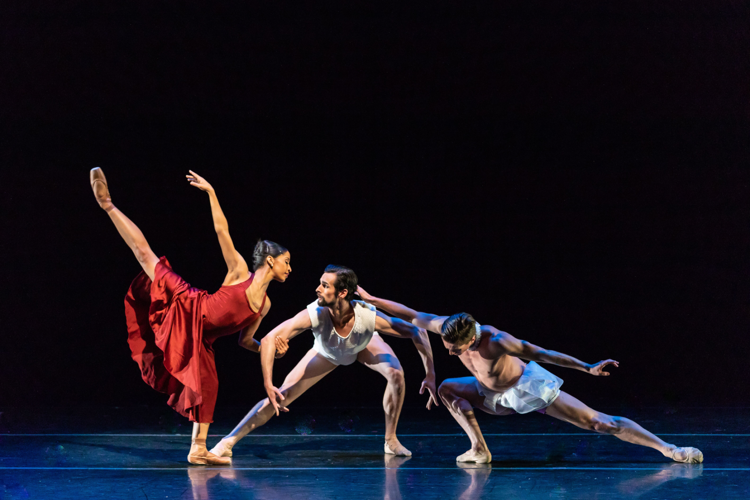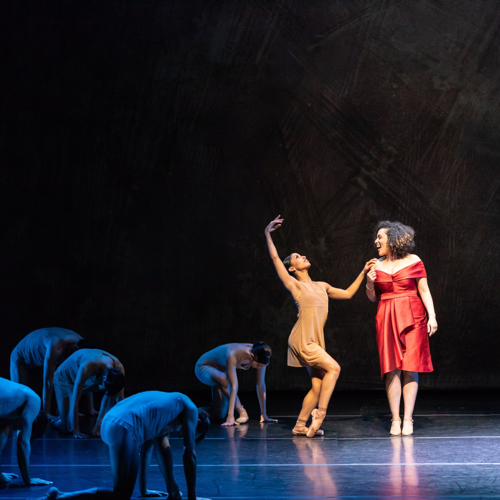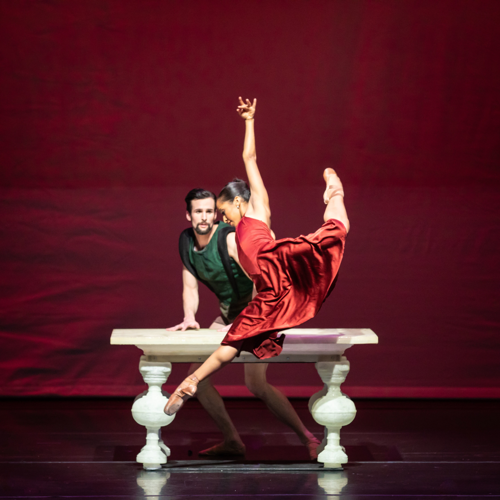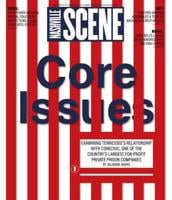
Attitude: Lucy Negro Redux
Attitude: Lucy Negro Redux is a ballet for people who didn't know that they could love ballet.
Friday night, the Scene checked out the world premiere of the production — a ballet based on Nashville poet Caroline Randall Williams’ poetry book about the Dark Lady, who figures prominently in Shakespeare’s Sonnets 127-154. Produced by Nashville Ballet, the production was scored by Carolina Chocolate Drops founder Rhiannon Giddens, who performed during the three-day run at TPAC’s Polk Theater Feb. 8-10.
It was nothing short of astonishing, cracking the art form open and re-creating it to be more open, inclusive and vibrant.

Attitude: Lucy Negro Redux
Williams narrated the production, sauntering across the stage to recite the poems she wrote as part of her master’s degree thesis, Lucy Negro, Redux (review here), in 2015. Williams became fascinated with Shakespeare’s Dark Lady. She said at a panel discussion sponsored by Native magazine that she looked to Shakespeare, who she called her “first big love,” to answer questions she had about black women loving white men. Interracial relationships between black women and white men carry a complicated inheritance because women confined to slavery were so often raped by slaveholders and other white authority figures. Most of the scholarship about the sonnets looks to various Mediterranean women as Shakespeare’s muse, but Williams found one scholar who believed otherwise. She wrote to Duncan Salkeld, a professor at the University of Chichester in West Sussex, England, and he suggested she travel across the pond to meet him and view the documents suggesting that Shakespeare’s Dark Lady was named Black Luce, a biracial madame of a brothel who was in the same social circles as Shakespeare. Williams went to England, and in doing so, she gave herself permission to “wildly surmise” a history, as she said in the post-show talkback — “to make wild leaps of the imagination.”
The result is a sexy, audacious, beautiful volume of poetry that births Lucy Negro into being and proves — in case we had any doubts, which we shouldn’t — that “there is beauty in the dark.” Nashville Ballet’s artistic director Paul Vasterling was so enchanted by the book that he approached Williams about adapting it into a ballet, which he choreographed and directed. The lead is played by Kayla Rowser, who gave an emotional, flawless performance. She summons the confidence and courage that Williams imagined in Lucy — a woman who is unapologetic about who she is. Rowser and Williams are accompanied on stage by composers Rhiannon Giddens and Francesco Turrisi. Giddens calls the music a “folk score” of dance-based music with roots in Shakespeare’s time. Turrisi is a world-renowned Italian instrumentalist whose knowledge of chord progressions in Elizabethan theater gave the score authenticity, but with Giddens’ bluesy, folk bent.

Attitude: Lucy Negro Redux
Williams said in the talkback that Shakespeare’s sonnets were a window into understanding and owning her own beauty, and it shows. Technical mastery aside — though it too is potent — the production is about her bold journey to find self-love that embraces blackness and gives voice to those who historically have not been heard before. It’s almost unbelievable that Black Lucy found a home in ballet, an art form so rigid about whiteness that black and brown ballerinas still must dye their shoes — Capezio, the leading dance shoe maker, does not sell pointe shoes that are not pink, even though ballet shoes are supposed to extend the line of the leg as far as possible. While smaller companies are making up for this lack by offering a variety of skin tones, Capezio shows a troubling institutional stubbornness that excludes dancers who don’t fit a mythical norm.
All this is to say that Attitude: Lucy Negro Redux is not just original, but revolutionary — marking a seismic shift in the art form not just in Nashville, but in dance the world-over.
Third Man Books has re-released the book with bonus material: a conversation between Vasterling and Williams, Vasterling’s director/choreographer’s notes and photos of the record from Bridewell Prison that mentions Black Luce. You can preorder it here. And if you missed the production in Nashville, you can catch it in Knoxville during Big Ears Festival Mar. 20 - 21. It’s well worth the trip.







